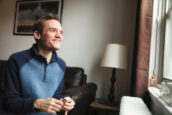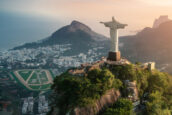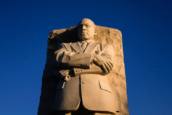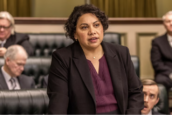
Faith and hope renewed as water begins to flow
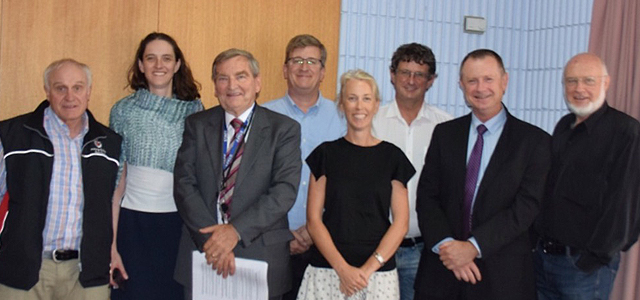
After almost a year of no water, the Lower Darling River in the Murray Darling Basin has begun to flow once more below the Menindee Lakes region in New South Wale’s far southwest. In early June when the Moderator Rev. Myung Hwa Park visited the region many people had all but given up hope, facing a water crisis of epic proportions and great uncertainty as to a sustainable future for the region.
Now faith and hope have been renewed as communities celebrate the water flows released by the Government following recent rains in the northern NSW and Queensland catchment and the Murray Darling Basin Group considers ways to direct the Uniting Church vision for the region.
Since its formation in 2014 the Murray Darling Basin Group has been expressing God’s love, taking forward the Uniting Church Synod of NSW and the ACT’s vision and ministry to be a transforming presence in the Murray Darling Basin, offering pastoral care to the people and a prophetic voice for the reconciliation and renewal of creation.
Past Moderator, Rev. Dr Brian Brown and driving force behind the formation of the Murray Darling Basin (MDB) Group recognised the burden of ministry in the region was falling on relatively few, usually lay people, at a time when strong congregations were needed to support their communities. On the back of the millennial drought and the implementation of the Murray Darling Basin Plan, the MDB group acknowledged the crisis facing basin communities, the efforts of farmers to implement more sustainable farming methods, and the poor health of the MDB river system. The MDB Group draws together people from across the Synod and supports the wider church to explore ways of working together for the common good of the Murray Darling Basin and its people. The group runs annual tours to the region with the next tour in September. At their recent annual meeting in Canberra, the MDB Group pondered future directions in the context of a constantly challenging and fragile situation, with communities facing economic, social and environmental challenges.
Moderator Rev. Mung Hwa Park who attended the meeting said, “We are all connected because of the importance of the Murray Darling Basin Rivers. There is much work that has been done by government and community based agencies and also by the Church. We are sharing collective wisdom of the Church and what insight and understanding we have gained over the last few years since the group formed. It is our aim and our hope to see the goodness that God has made in our environment.”
Guest speaker at the meeting and scientist Brad Moggridge, an Aboriginal man originally from the Kamilaroi Nation of north-west New South Wales and program manager of the Aboriginal Water Initiative at the NSW Department of Industry spoke of the environmental and cultural value of water to Aboriginal people. “We inhabit the oldest and the driest continent on the earth. Water is important to First Peoples for song, dance and stories however we can’t identify when and where water flows in Australia,” said Mr Moggridge.
The separation of water and land is impacting Aboriginal cultural values that depend on water. More action is needed including changing the Water Act and providing water for Native Title rights – recognising spiritual, social, customary and economic values of water to Aboriginal people.
The Aboriginal Water Initiative is hopefully on the way to fixing some of the issues relating to water planning and management through policy and building a body of knowledge that looks at Aboriginal culture and relationship with water.
Uniting Earth Ministry’s Dr Miriam Pepper updated the MDB Group about the project “Faith in a Basin Future”, which plans to further develop a community based model for vitality and resilience in Basin communities. Its aim is to be more engaging with the communities in the Basin around the interconnections between ecology and spirituality, care for earth, economic decisions and human flourishing.
Catholic Earthcare is also a partner with the Uniting Church in the project. Catholic Earthcare has a mandate to foster a journey of “ecological conversion” across the country, working with parishes and Catholic organisations Australia-wide.
The vision for Faith in a Basin Future crosses cultural and economic differences across the community and the group has experienced first-hand some of the struggles in realising its expansive vision.
Dr John Williams, member of the MDB Group and part of the Wentworth Group of Concerned Scientists, outlined the recent challenges with project in championing youth groups in the Riverina region and reiterated that success would require not only greater capacity-building but also sensitive nurture in Church communities ecumenically safe places to examine spiritual, ecological and economic futures for Basin communities.
Dr Williams said learnings are being taken on board from the first phase of the project, “There are few safe places in Basin communities to have such conversations and consider new futures. To date there has not been a great deal of balance in our community with how we might use and live with our rivers, it is still a tension filled debate.”
It will be important to build strong relationships with Churches across the ecumenical spectrum, and with community groups and other institutions and individuals, who are open and willing to engage. Supporting and showcasing practical initiatives that point towards a vibrant, sustainable future are also critical.
Paul Ballard, chair of the Riverina Presbytery, said: “Our churches work well ecumenically on refugee issues. Wouldn’t it be wonderful for the Churches to work more together on water as well.”
Experience first-hand spirituality and life in the basin on the 2016 Murray Darling Tour
Join the Moderator Rev. Myung Hwa Park and the Chairperson of NSW/ACT Congress Diane Torrens on this year’s Murray Darling Basin Tour.
The coach tour departs from Wagga Wesley Uniting Church on 10 September, 2016 and follows the Murrumbidgee River through the heart of the Riverina.
Registrations or more information about the MDB group and the itinerary can be found here
Email inquiries: mdbtour2016@ucansw.goregister.com.au
(Pictured) FBF Reference Group members meet with MDBA Chair Neil Andrew in Canberra on 4/2/16. from left: Paul Creek (UCA Riverina), Dr Miriam Pepper (Uniting EarthWeb), Neil Andrew (Chair MDBA), Simon Habel (Catholic Earthcare Australia), Jacquie Remond (Catholic Earthcare Australia), Assoc. Prof. John Goss (UCA Canberra Region), Colin Mues (MDBA), Prof. John Williams (UCA-Canberra Region)
- Tags: climate change, environment





